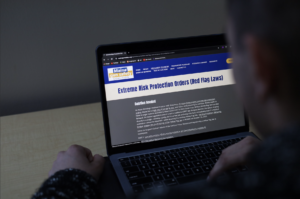The opioid epidemic in Maine is getting considerably worse, and more and more residents are suffering and dying from this disease. In the last year alone, 376 Maine residents lost their lives due to overdosing on opioids, according to an article posted by the Bangor Daily News (BDN). This number continues to rise every year.
The Maine Department of Health and Human Services (DHHS) provides statistics showing how many people had consulted a doctor near the time that they overdosed and died, according to the BDN, but instead of making this information public, they chose to remain silent.
There is believed to be a stigma around this opioid epidemic— many can see that it exists, but no one talks about it until it is too late. In order for people to make a change, people need to be aware of just how bad this epidemic is becoming.
In August, the city of Portland held a vigil hosted by the Portland Needle Exchange program to honor and remember those who have died from overdoses. While the event is held annually, this particular event differed from those in the past in that the group offered tips on how to fight back via free naloxone and training, according to the BDN. Around 100 of these kits were handed out, which included a training version and two functioning doses that are similar to an injection via an EpiPen.
The hope is that these kits will not be needed, but they would be helpful to have in an emergency. In 2017 so far, over 185 people have already died from opioid overdoses.
“The opioid epidemic continues to devastate our communities, both rural and urban, all across Maine,” Janet Mills, the Maine Attorney General, told the BDN. “It is the greatest challenge of our time.”
Augusta lawmakers passed an emergency bill this year to allow pharmacists to sell naloxone over the counter without a prescription. Many pharmacies are withholding this, as it violates the state’s pharmacy board.
Governor LePage has received pushback on his ideas on how to deal with those who have survived a drug overdose: to charge the individual for the cost of opioid antidotes used to revive that person, and to require mandated reporters to file child abuse reports to DHHS if it is believed that a pregnant woman is abusing drugs or alcohol.
President Donald Trump has also acknowledged that the opioid epidemic is a problem and has mentioned his plan for how he would like to fix it. He would like to declare this a national emergency in order to get more funding and attention for those who are suffering.
The epidemic is rising and it is time for the state of Maine to come up with a plan to decrease the number of addictions and deaths.










